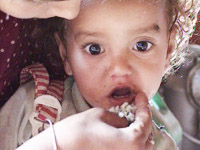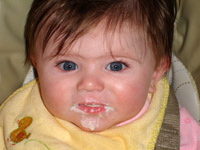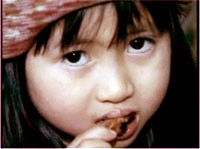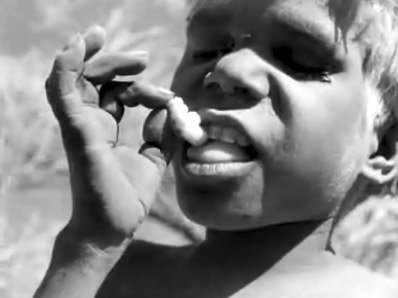|
Anthropology in the News
|
|
||||||||||||||||||||||||||||||||||
 "Palermo,Sicily Italy |
 A Fistfull of Rice Nepal |
 Claire Kathleen Roufs U.S.A. |
 "Eating Rat At The New Year" Vietnam National Geographic |
 Desert People Australia |
Extra Credit information is availabe at Course Whales / Dolphins / Porpoises (Cetacea) WebPage
|
From the Top Documentary Films The Grind HomePage . . .
"We have an outdoor slaughterhouse," a voice informs us in the opening moments of the new documentary The Grind. In the Faroe Islands, which lie in the North Atlantic between Iceland and Norway, the majestic blue oceans often turn crimson with tides of blood. With little agriculture and wildlife at their disposal, the Faroe Islands have long looked to the sea for their main source of nourishment and commerce. This results in the widespread slaughter of whales and other sea life in a practice known as "the grind." While the grind has been a tradition on the islands for nearly a thousand years, it has recently spurred the ire of animal rights activists all over the world, who look upon the murder of these beautiful creatures with great disdain and protest. One such activist is Lamya Essemlali, who serves as president of Sea Shepherd France, an organization that patrols the waters in the region in an effort to protect whales from such abuses. Joined by hundreds of additional volunteers from all over the world, they formed a campaign called Operation Grind Stop. "What's happening here is something that's easy to stop if we have the will," Lamya says. But rallying that willpower among the locals proves to be a great challenge. Most are vehemently opposed to what they view as the group's unwelcomed incursion upon their way of life and means of survival. "You are not activists, you are terrorists!" cries one protester during a town hall meeting. While The Grind makes the brutality of whaling jarringly clear from reels of footage dating back many decades, the film also offers the opposing point of view from the Faroese people themselves. "Grind is a part of a much bigger picture," says Kjartan Hoydal, a marine ecologist and native islander. "We only have the sea to depend on and we can't accept that the world goes in a direction that we can't use those resources." The Grind is a thoughtfully assembled examination of the battle between what some view as a necessary way of life, and the pursuit by others to promote ecological and humane responsibilities. |
|
|
||||||||||||||||||
|
||||||||||||||||||
 Page URL: http:// www.d.umn.edu /cla/faculty/troufs/anthfood/video/The_Grind.html Site Information |
||
View Stats |
|